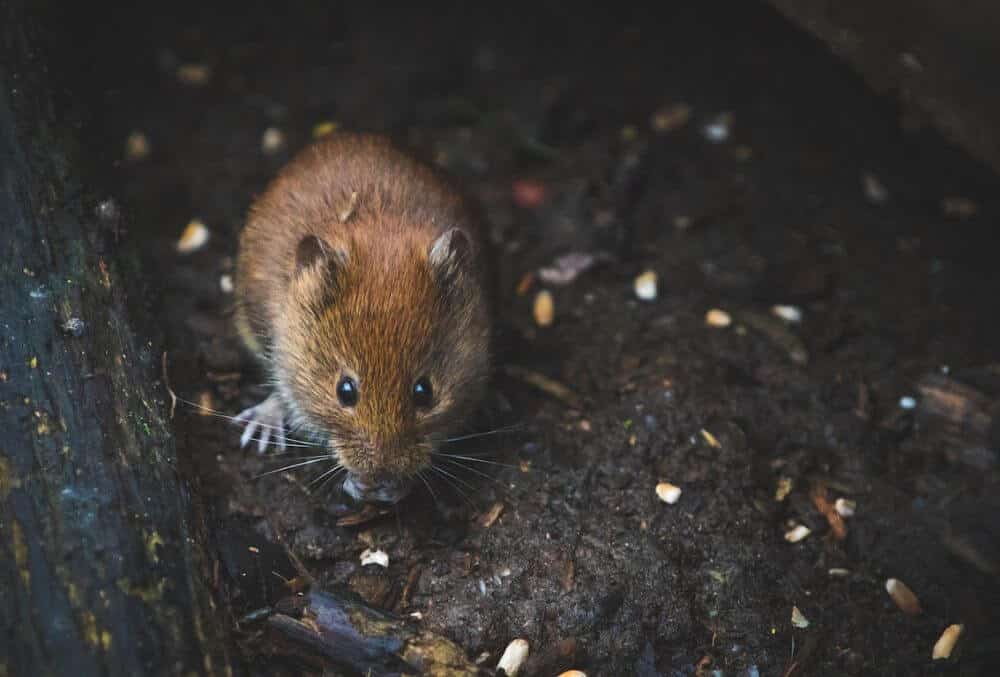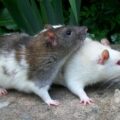Table of Contents
Rodent control is important for the health and safety of your house. Rats thrive in specific environments and do not in others. Given that they have a keen sense of smell, they are often attracted or repelled by the smells in an environment. Thus, to ensure they never show up or stick around in your home, you might need to find out the smells they detest.

Things that provide shelter (like clutter) and food (think dirty dishes) attract rats. As such, the first thing to ensure your home never attracts rats is to avoid clutter and keep your home tidy.
However, that might not be enough for the nibbling creatures. They can still make a mess of things in the basement and the attic when there’s no one present. To stay one step ahead, you’ll need to know the smells these unwanted guests hate.
What Kinds of Smells Do Rats Hate?
Many people believe rats dislike certain smells. These pesky creatures have over 200 smell receptors, unlike our five. This makes them super sensitive to smells that we may not even be sensitive to.
However, some of these smells might not be effective in repelling rats. Mothballs and garlic are two popular scents that many believe rats are wary of. The fact is that there is no conclusive scientific evidence proving a lot of these claims.
Generally speaking, however, rats will keep off predator smells, some chemical smells, and natural scents. The effectiveness of using these objects to deter rats from staying in your home can be subject to some factors. Here are some smells rats hate:
Predator Smell
Like most other prey animals, the presence of a predator elicits a stress response from rats. If a rat perceives that there might be a cat, ferret, or some other predator in its immediate vicinity, it is not likely to stick around.
Some studies prove that exposure to predator scents increases rats’ hormones and affects their response and behavior. Thus, having a house cat may be effective for keeping rats away.
Note, however, that rats can be skilled in avoiding their predators. Therefore, even though there’s a predator around, there are still high chances of a rat infestation if your home provides a favorable environment for them to thrive.
Besides the presence of cats, some evidence suggests that rats are averse to the smell of carnivore urine. Meat-eating animals produce an amount of 2-phenylethylamine in their urine that rats utterly hate. Inasmuch as the smell deters rats, filling your home with urine is, of course, not ideal.
You may also want to consider using cat fur to repel rats. Besides the actual pet, rats can be triggered by just the thought of a predator. Thus, if you have cat fur, you can place it in the areas of the house that rats enter from. This method might be ineffective if you have a severe rat infestation.
Garlic
Garlic is another aromatic spice that many people do not like at all. The substance allicin in garlic cloves is responsible for their lingering taste and pungent smell. The smell is what makes rats detest garlic.
Onions can also elicit the same response from rats as garlic. However, using garlic cloves to repel rats from your property is not cost-effective. A garlic and onion solution spray might be adequate to prevent rats from entering your house.
To make this spray, bring three cups of water to a boil and add one onion (chopped) and three garlic cloves. Then reduce the heat and allow the mixture to simmer. After three to five minutes, turn off the heat, let the mixture cool and strain it into a spray bottle. Spray the mix at the rat hotspots in your house, and they will begin to avoid those spots.
Mothball
There’s a substance called naphthalene present in mothballs that is believed to repel rats. Even though rats certainly do hate the smell of mothballs, placing mothballs around your home might not be an effective way to deal with your rat problems.
For mothball to effectively keep rats out, it must be in large volumes. However, large volumes of mothballs in your home can be toxic and lead to respiratory and other health issues. Thus, mothballs might not be the most effective means to deal with a severe rat infestation problem in your home.
Cloves
Using cloves is another popular way to deter house rats. Cloves smell “clean” and spicy, and this combo appears to be dreaded by rats. It may be effective to tie whole Cloves in cloth and place them at different spots in your home. Alternatively, you could soak cotton balls in clove oil and put them in vents or other parts of your home.
Eucalyptus
Some research shows that rats dislike the smell of eucalyptus oil. Even though it creates a pleasant fragrance in your home, it could discourage rats from nesting in your home.
However, since the smell soon fades away, you will need to use eucalyptus daily for it to be effective. Also, they are not a very strong deterrent, as rats can easily find their way around and avoid areas with solid eucalyptus scents.
House Ammonia
Generally speaking, rats are averse to strong scents. Ammonia is one of those substances believed to be a good rat repellent. House ammonia, in the form of ammonium hydroxide, produces a harsh odor that disturbs rats’ sensitive smell.
There might not be any scientific evidence to back up this claim. However, some anecdotal evidence shows ammonia to have a certain level of effectiveness in keeping the home rat-free. Some homeowners soak rags in ammonia and leave it lying in areas like the attic or basement to keep rats from coming in.
Hot sauce
Hot sauce and other spices like chili pepper are simply overwhelming for rats. Many mammals find them too strong for their taste buds and their smell receptors. A substance called capsaicin is responsible for its “hotness” and is avoided by rats.
Thus, to create a rat repellent with this knowledge, you can make a spray. Just mix hot sauce water and a few drops of dishwashing liquid and mix it all in a spray bottle. Then spray in areas where rats enter the house from. Not all peppers contain capsaicin; thus, not all peppers are effective for this rat-repellent recipe.
White Vinegar
Another household item that might be effective in preventing rats is white vinegar. Due to its strong smell, rats might want to steer clear of any areas with vinegar in them. This is especially effective when they have never smelt white vinegar before. In this case, an unpleasant and unfamiliar smell will have them on edge till they abandon their nests.
Peppermint
There’s some evidence that suggests that rats dislike the smell of peppermint. In large quantities, peppermint oil could carry a strong scent that can make rats uncomfortable. Usually, people would soak cotton balls in peppermint oil and place the balls in strategic spots around the house.
Besides peppermint oil, the peppermint plant and other minty-smelling plants can effectively repel them. There are several ready-to-use commercial rat repellents in the market containing peppermint oil. You can use these repellents in your home to keep rats away. Spearmint oil and wintergreen oil might also be effective for this purpose.
While this method gives your home a delightful fragrance, it is not a sustainable way to prevent rats from entering your house. Like any essential oil, your peppermint oil will evaporate after a few minutes and become ineffective. Even though the strong scent at the beginning might keep the rats at bay, its effectiveness will dwindle over time. Thus, plants might be more effective, especially if rats disturb your garden plants.
Citronella
Lots of animals and pests hate the smell of citronella. Due to its strong scent, a rat’s smell receptors can be overwhelmed when it’s around a high volume of citronella. A study showed that rats could not consume much food in high citronella areas and consumed significantly more food in areas where citronella was absent.
Due to the overwhelming scent of citronella, the rat might become unable to perceive anything else in its immediate surroundings. This situation threatens the rat’s safety as it feels it would be unable to perceive a predator or other risks. Since rats are heavily scent-driven, they will avoid citronella at all costs.
To use citronella as a rat repellent, simply soak cotton balls in 10% concentration and place them around your home. If you buy 100% citronella oil, it’s best to dilute it to 10% as this appears to be most effective for keeping rats away.
Used Coffee Grounds
Your used coffee grounds might not be totally useless as they can offer some help as natural rat repellents. The bitter taste and the strong smell of used coffee grounds are simply not pleasant to rats, and they would do everything to avoid it.
You can place your used coffee grounds in plastic bags in rat zones around your home. Also, if the rats often disturb the plants in your garden, you can simply place the grounds directly on your garden soil. Not only would they act as compost for your plant, but they’ll also keep rats away.
Although this provides an inexpensive means to keep rats from your home, several factors will affect its effectiveness. For example, the number of coffee grounds, the weather, and the rat breed might determine how effective it is. Thus, if you find this method ineffective, you can use other, more effective strategies.
Other Ways to Repel Rats from Your Home
Several factors have to work together to keep rats off your property. In fact, these methods listed above would be more effective when combined with other practices.
Keep Your Home Clean and Tidy
Rats thrive in dirty and untidy areas of your home. As we stated earlier, rats are attracted to places where they can get food, shelter, and water. Thus, dirty dishes in the sink or open foods lying around attract rats to your home.
Thus, building materials lying around in your yard will provide shelter for them. Leftover pet food lying around will certainly draw their attention also. Therefore, you must observe high sanitary standards in your home if you want to keep rats away.
Also, if they still get into your property for some reason, a clean and tidy house makes the methods above more effective. Keep your trash out of the house and properly sealed if you don’t want to attract rats.
Also, ensure that you do regular repairs and maintenance on your property. When you keep your property in proper condition, you reduce the chances of rats getting into your home.
Eliminate Rat Entrances
It’s important to note that rats are skilled at finding cracks to slip through and move around your home and property. It’s thus necessary to close any holes that can serve as an entrance for rats into your home. They can squeeze through holes of less than one inch. Therefore you must seal holes with materials that rats cannot chew through.
Summary
Rats are not just a nuisance but also a potential health risk for residents of a property. Therefore, it is important to keep them at bay. To varying degrees, you can keep rats out of your home by using the aforementioned strategies. Their efficacy is contingent on a number of conditions, though.
Since rats are smell-driven, it’s only normal to figure out the smells rats hate and use them to our advantage. One of the most potent smells that spell danger to rats is the smell of a predator. Other everyday household items like white vinegar and mothballs also have a repelling effect on rats. These methods are often short-lived and will not keep the rats away for a long time. So, if you think you have a rat infestation in your home, it’s best to seek professional service.





